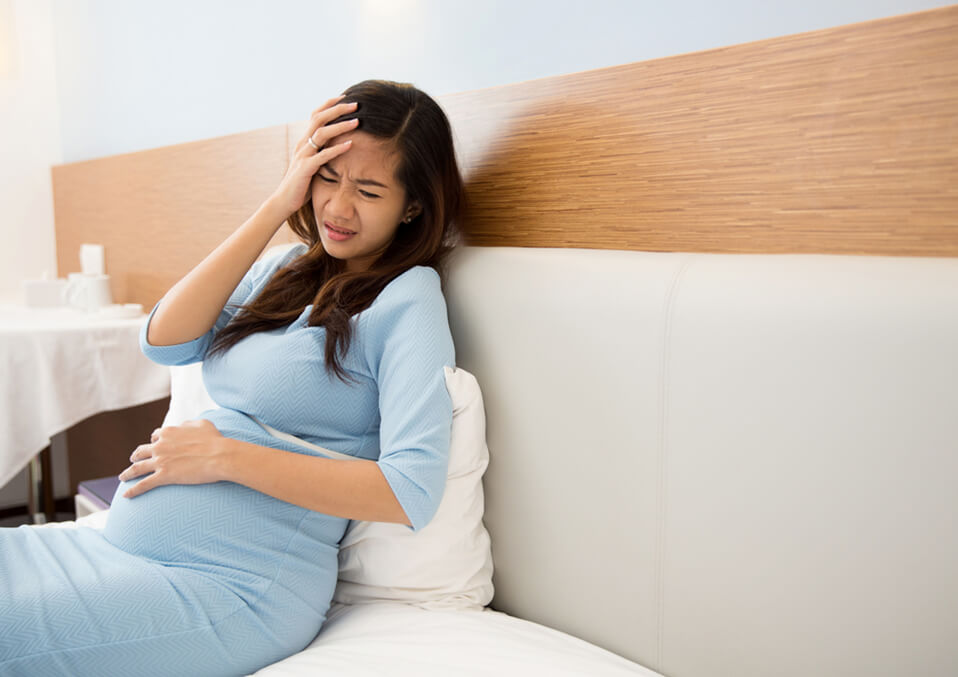
Pregnancy is such a wonderful journey for every woman who aims to experience motherhood. That is the positive part of it because the uncomfortable feeling of having a growing baby inside of you can be too much to handle. There are a lot of symptoms that a woman experience during the first trimester, one of the most common symptoms is nausea. A huge percentage of pregnant women experience nausea or morning sickness at least once, but there are some women who are lucky enough to not get through this at all.
Having morning sickness or feeling nauseated may be normal, but it can cause dehydration which can be very dangerous for a pregnant woman. There are some women who only experience this along with other pregnancy symptoms during their first trimester, but there are also some who suffer from it till the beginning of the second trimester. If you want to find out what causes it as well as how to manage it, then you are on the right page.
Possible causes of nausea during pregnancy

According to obstetricians, there is still no accurate study that could explain why most women experience nausea as well as vomiting during their pregnancy. Although it is something that will not have any harmful effect on the fetus, it can be extremely uncomfortable for the mother. Some experts say that a woman’s human chorionic gonadotropin level or also known as the HCG hormones can be one of the causes. It is also known as the pregnancy hormone since it is produced by the body when the egg gets fertilized and once it attaches itself successfully to the uterine lining. This is also the type of hormone that travels through the blood as well as the urine, hence a blood and urine test is necessary for a pregnancy test.
The hormones are known to affect a woman’s sense of smell and taste, this could be the reason why a pregnant woman might feel nauseous whenever she is around aromatic food. Some experts also say that suffering from nausea during pregnancy may also be caused by stress, and it is simply the body’s reaction to it.
When to expect it and what does it feels like?

It is known that nausea usually starts within the first trimester, but it is expected to stop once you hit your second trimester which is within 12-14 weeks. However, since every pregnancy is different, some may experience it coming in earlier and some women still suffer from it even when they are already in their second trimester. It usually happens during the morning hence, it is commonly known as morning sickness. Although, it can actually happen any time during the day.
That urge of having to throw up can make anyone extremely uncomfortable. Women who deal with it multiple times a day almost every single day during their first trimester, often seek ways on how they can decrease it. There are some medications that are prescribed by doctors to ease their nausea, but experts believe that it is best to find natural ways to do it.
Severe nausea
Unfortunately, there are some women who suffer from severe nausea and this is known as having hyperemesis gravidarum. There are a lot of women all over the world who lose weight because of this since they have been throwing up most of the time. They are not able to keep anything down after they eat. There are some cases wherein this can be treated by bed rest and dietary supplements, however, there are some severe cases that usually ends up with the pregnant woman staying in the hospital to receive fluids.
It is very important for you to let your doctor know about how you are feeling especially when it comes to nausea. Do not take any form of medication without their supervision.
Morning sickness remedies
There are now amazing ways that you can try if ever your morning sickness has been bothering you a lot lately. Keep in mind that these are just some of the ways you can reduce your nausea, but it is not guaranteed to completely get rid of it and it may not even work for you. However, you would not know if you would not try, they are completely safe so you got nothing to worry about.
- Stay hydrated
The urge to throw up cannot be avoided but drinking water to stay hydrated is very important. Some women feel as if their nausea subsides every single time they have a drink of water. What you need to know is that staying hydrated during pregnancy means consuming over 8 glasses of water, it is not ideal to drink energy drinks such as Gatorade since it contains sugar and some other energy drinks even contain caffeine.
- Try OTC Medications
If it is becoming such a nuisance that it is affecting your daily habits, you can try and get some over-the-counter medications that are suitable for pregnant women. Even if these medications that may help your nausea are safe for pregnant women, it is still ideal to consult your obstetrician about it. You must always ensure that whatever you drink or eat is safe for you and your baby, most especially medications since they contain side effects that may cause complications.
- Eat slowly and frequently
If you are used to eating big portions to fill yourself up, then it is best to stop doing it if you are suffering from morning sickness lately. Some women’s appetite increases because of their cravings, so you might want to consume your food slowly and switch to smaller portions. Experts say that when your stomach is full, the urge to throw up will most likely happen constantly. Eating small portions of snacks and meals throughout the day might be able to help you out.
Despite nausea being one of the earliest and most common of pregnancy, it is still the best if you make an appointment with your doctor to confirm that you are expecting. Do not rely on pregnancy tests since they can give false results. Nausea does not always mean that you are pregnant, you might be suffering from other conditions and your healthcare provider is the only one who can make a diagnosis. If it turns out that you are expecting, you can tell your doctor all about your experience with nausea since severe nausea can be very dangerous. You and your unborn baby’s safety must always come first.
Read also:
- Understanding Nighttime Nausea
- How do You Deal with Nausea During Pregnancy?
- Zofran for Nausea: is it Safe for Pregnant Women?


